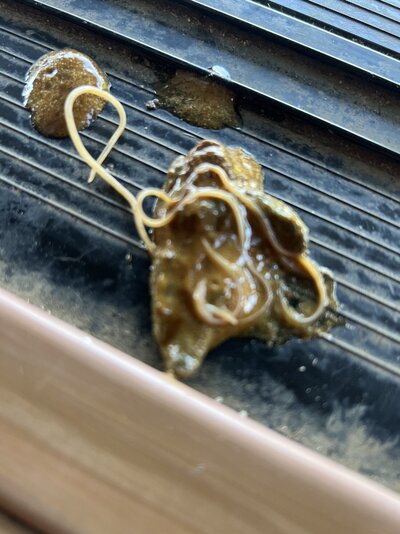Jrbd82
Songster
Chicken left this right at the back door yesterday. I’ve never worked them before as was told by a chicken farmer if 25+ years it wasn’t necessary- but this convinces me to go ahead. I bought valbazan (for goats) quite some time ago per a post on here. I need help in how to administer this and fix the problem! I’m overwhelmed as I have 14 adult chickens, 10 five month old chicken, 16 chicks. 19 ducks. 
Also how long do we have to throw the eggs out for afterward? I’m afraid of crossing out my customers when I tell why they cant buy eggs for awhile!
Also how long do we have to throw the eggs out for afterward? I’m afraid of crossing out my customers when I tell why they cant buy eggs for awhile!





